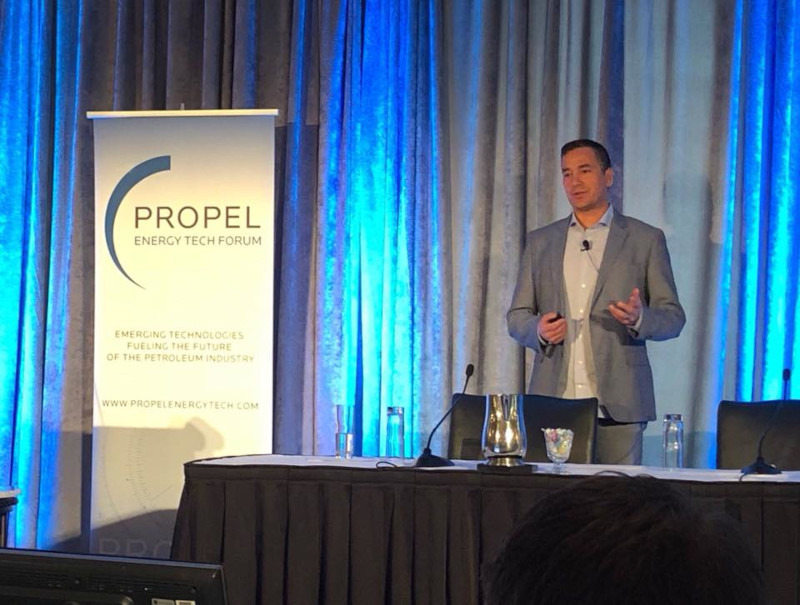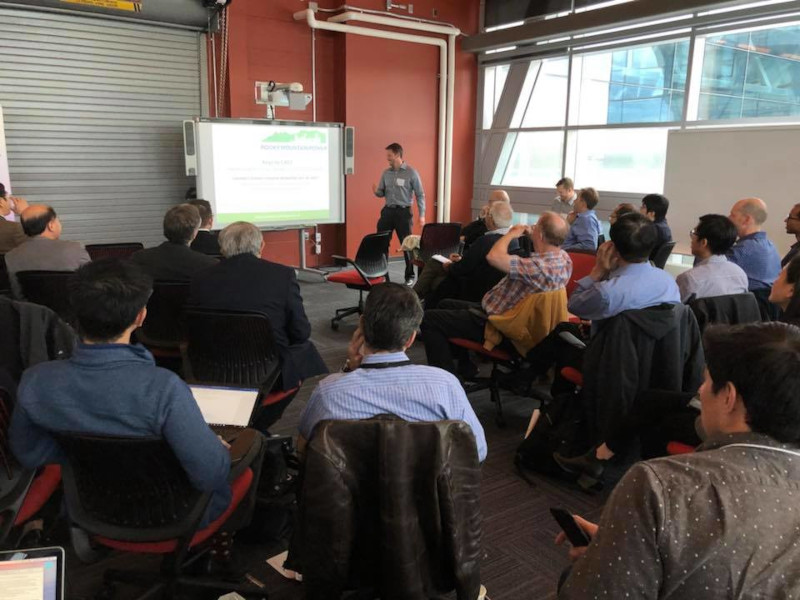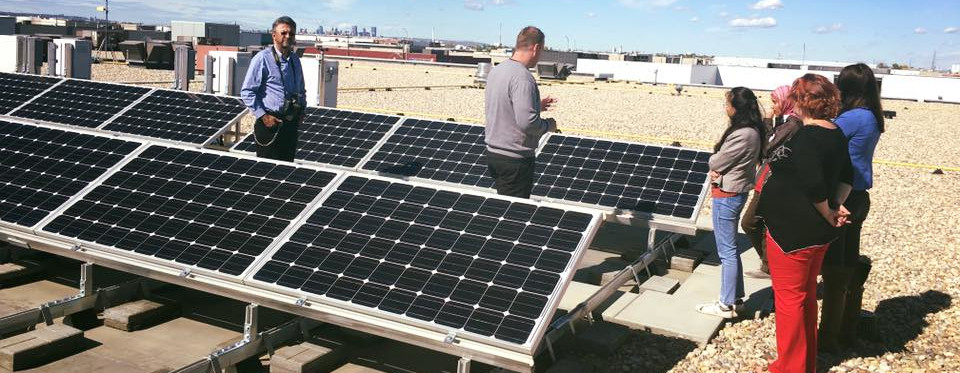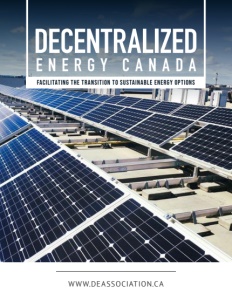Decentralized Energy Canada
Facilitating the Transition to Sustainable Energy Options
Canada’s leading industry association for decentralized energy is playing a pivotal role in the transition from centralized energy to more localized and sustainable energy systems.
For 20 years, Decentralised Energy Canada (DEC) has stood as a pioneering force in Canada’s energy landscape, spearheading the conversation towards sustainable, resilient, and cost-effective energy solutions. As a federally incorporated, non-profit industry association, DEC serves as the premier hub for the decentralized energy industry across the country.
Concisely defined, decentralized energy (DE) is energy generated and stored near its point of use, encompassing various energy forms and efficiency measures. DE projects are adaptable to meet local demand, without predefined capacity limits, offering a sustainable and responsive energy solution.
DEC’s Evolution
Founded in 2003, DEC’s mission revolves around exploring decentralized energy, focusing on energy generation that’s embedded in communities, buildings, and distribution networks rather than relying solely on centralized transmission lines.
“We were formed by a group of leaders in Alberta,” recounts Founding President, Anouk Kendall. “There was a workshop with utilities and energy generators, and all of the who’s who of the utility industry came to this workshop. The question of do we need an industry association to look at decentralized energy was posed, and the response was a unanimous yes, we do need an industry association to look at this.”
Although the association’s journey began in 2003 as a regional entity in Alberta, Kendell quickly recognized the need to expand nationally due to limited momentum and support for decentralized energy initiatives.
At the time, only a few provinces in Canada had net metering and net billing policies in place to facilitate distribution-connected energy. Initially faced with challenges in garnering financial backing and regulatory support, the organization made a change.
Kendall elaborates, “We decided to make a real pivot and go directly into the industry.” Over time, they successfully built a robust network of stakeholders throughout the complex decentralized energy value chain, involving communities, hospitals, utilities, technology providers, and investors.
“It’s a broad range of people that are involved in the decentralized energy space, as opposed to the traditional energy sector, which is utility-centric, mostly run by utilities,” she maintains.
“We’ve got over 10,000 subscribers in our network in Canada, covering all of the different segments of the value chain.”

Scott Carrington, CEO and Founder, Finis Energy
A Diverse Membership
With a membership that has held steady between 100 and 150, Kendall notes. “It’s cool. We’re just little but we’re tough. We have a lot of impact.”
She says the association’s membership is highly diverse and includes a wide range of invested participants from various sectors within the industry, maintaining that they bring together government representatives at all levels, with a strong focus on municipalities as key players in energy democracy and microgrids.
Around 40% of the membership consists of entrepreneurs, covering areas such as predictive analytics for the grid, electric vehicle charging infrastructure, and software development. Additionally, the membership includes investors interested in supporting innovators in the field. The association’s work involves assisting members with regulatory reviews, technology piloting, and various initiatives to advance decentralized energy in Canada.
“One area we’ve succeeded in is being an accelerator for projects,” Kendall portrays. “We had a company that was trading carbon credits, and they joined us and said, ‘We don’t have any customers, we’ve just started this, and we want to test out our software on someone’. Their first 12 customers came from us. One was a utility at a traditional utility, one was a member-owned utility, and another was an electric vehicle charging company. All of these companies went to this new entrepreneur willing to pilot their software.”
The Structure of DEC
DEC operates with a highly adaptable team, with an average of five full-time members. Kendall relays, “We are a team that varies in size. Talking about resiliency, we’re an industry association that lives by that as our key rule because it’s been a long journey. There’s been varying levels of support, so we have a resilient business model.”
She says the core team consists of herself (the president), an operations manager, an events manager, and a financial services manager, who collectively handle the majority of the organization’s work. The team augments its expertise with subject matter experts on various aspects of the energy industry, utilizing a flexible and contracted staff model that allows them to bring in specialized talent as needed.
“We have a phenomenal board of directors, that is an advisory board. They’re not a working board, but they are there when things get challenging,” Kendall acknowledges.
The Annual Decentralized Energy Forum
The association’s annual conference, the Decentralized Energy Forum, plays a pivotal role in their activities. “These forums are our annual gems. They are not like any other conference,” boasts Kendall.
“The program is built around the narrative of what’s happening in the energy transition, and in every forum that we have, I try to figure out what the emergency or urgent transition is that needs to be addressed. Last year it was sustainability how codes and standards lead to policy and regulations. This year, it’s going to be more around natural disasters and extreme weather, but from a very academic and educational side of things.”
Kendal explains that the conference aims to provide a deeper understanding of the energy system’s complexity, including discussions on harnessing critical minerals from volcanoes and exploring the theoretical potential of energy from lightning. It serves as a platform for academics, entrepreneurs, and innovators to present their contributions to the field, fostering a stronger understanding of the interconnected systems in energy. The association also hosts a pitch competition during their annual conference, allowing entrepreneurs to showcase their innovative solutions.
 Key Terms in the Industry
Key Terms in the Industry
Emphasizing the importance of future terminology in the energy realm, Kendall shares key terms “prosumer” and “energy democracy.” She defines the term “prosumer” as a critical aspect of the future of energy, where individuals generate their power and are also the consumers of that energy.
This concept becomes especially significant in grid-connected urban environments, where prosumers can contribute to emergency power needs during crises. In such situations, a prosumer’s power storage, like a power wall, can be used to support critical operations within their home or even contribute power to the overall grid to assist the community. This decentralized system, involving prosumers, plays a key role in enhancing resiliency.
Additionally, she describes “energy democracy” as a noteworthy term that encapsulates the idea of individuals creating resiliency within their community by owning and managing their energy resources. While utilities remain essential for transactional energy, the concept of energy democracy empowers people to take charge of their energy needs and contribute to community well-being, thereby reducing the load on traditional power grids.
Smart grids are another overarching term in the sector, encompassing a more intelligent and efficient approach to power delivery, encompassing both transmission and distribution infrastructure. This includes large-scale high-voltage transmission lines and the smaller wires that reach residential areas.
Within the realm of smart grids, there exists a subset known as microgrids. Kendall emphasizes, “A microgrid encapsulates the decentralized energy space. It is the integration of thermal and electrical energy production within our buildings and communities. The definition of decentralized energy is producing your energy close to the loads, close to the users, instead of having to send your energy hundreds of miles away, either through pipelines of heat, or power lines.”
The Future is Positive
Over the next 18 months, Decentralized Energy Canada is expecting to enter a high-growth phase. Kendall emphasizes, “It’s been a long journey, and it hasn’t been an easy journey, to finance or to sustain. But I think the Decentralized Energy Forum in November at Chateau Lake Louise is going to be critical to really engaging the right leaders in our industry. There’s a lot of momentum building right now, and DEC needs to be there and start doing what we’re good at doing for more people.”
“We need to magnify the value we’ve been bringing to the industry. We’ve made an impact on accelerating the energy transition positively. There’s still so much more we can do.”
AT A GLANCE
Decentralized Energy Canada
What: A non-profit industry association serving as the premier hub for the decentralized energy industry in Canada
Where: Headquarters in Alberta, Canada
Website: www.deassociation.ca



